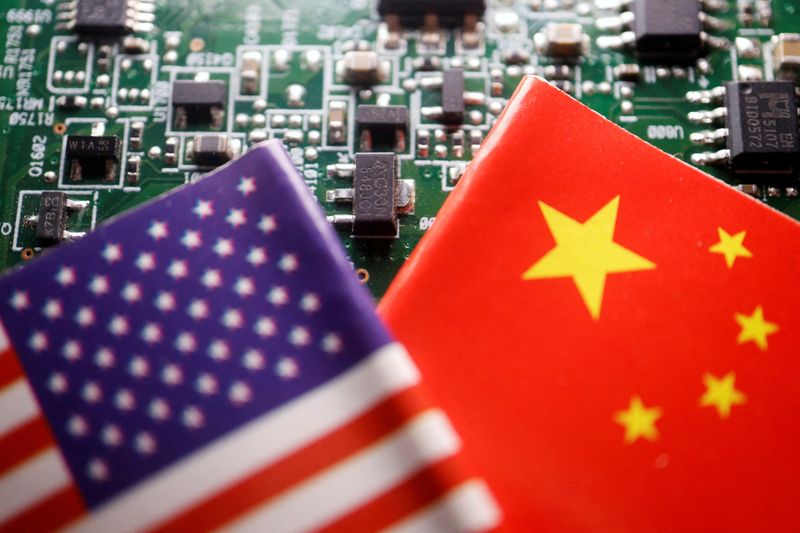Exclusive-New US rule on foreign chip equipment exports to China to exempt some allies, sources say
2024.07.31 01:30
By Karen Freifeld
NEW YORK (Reuters) – The Biden administration plans to unveil a new rule next month that will expand U.S. powers to stop exports of semiconductor manufacturing equipment from some foreign countries to Chinese chipmakers, two sources familiar with the rule said.
But shipments from allies that export key chipmaking equipment – including Japan, the Netherlands and South Korea – will be excluded, limiting the impact of the rule, said the sources who were not authorised to speak to media and declined to be identified.
As such, major chip equipment manufacturers such as ASML (AS:) and Tokyo Electron will not be affected.
The rule, an expansion of what is known as the Foreign Direct Product rule, would bar about half a dozen Chinese fabs at the center of China’s most sophisticated chipmaking efforts from receiving exports from many countries, according to one of the sources.
Countries whose exports would be affected would include Israel, Taiwan, Singapore and Malaysia.
Reuters could not determine which Chinese chip fabs would be impacted.
A spokesperson for the U.S. Commerce Department, which oversees export controls, declined to comment.
Aiming to impede supercomputing and AI breakthroughs that could benefit the Chinese military, the U.S. imposed export controls on chips and chipmaking equipment for China in 2022 and 2023.
The new rule, currently in draft form, shows how Washington is seeking to keep up the pressure on China’s burgeoning semiconductor industry but without antagonizing allies.
The Foreign Direct Product rule stipulates that if a product is made using American technology, the U.S. government has the power to stop it from being sold – including products made in a foreign country.
The rule has been used for several years to keep chips made abroad from Chinese tech giant Huawei, which re-invented itself after it struggled with the U.S. restrictions, and is now at the center of China’s advanced chip production and development.
Another part of this latest export control package will lower the amount of U.S. content that determines when foreign items are subject to U.S. control, sources said, adding that it closes a loophole in the Foreign Direct Product rule.
Equipment, for example, could be designated as falling under export controls simply because a chip containing U.S. technology is incorporated into it, they said.
The U.S. also plans to add about 120 Chinese entities to its restricted trade list which will include a half dozen chipmaking factories known as fabs, plus toolmakers, providers of EDA (electronic design automation) software and related companies.
The planned new rule is only in draft form and could change, but the aim is to publish it in some form next month, the sources said.
Aside from Japan, the Netherlands and South Korea, the draft rule exempts over 30 other countries which are part of the same A:5 group.
The Commerce Department says on its website that it categorises countries “based on factors like diplomatic relationships and security concerns. These classifications help determine licensing requirements and simplify export control regulations, ensuring lawful and secure international trade.”

The planned exemptions are a sign the U.S. needs to be diplomatic when implementing restrictions.
“Effective export controls rely on multilateral buy-in,” said a separate U.S. official who declined to be identified. “We continually work with like-minded countries to achieve our shared national security objectives.”








